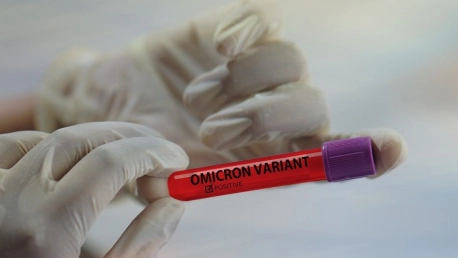Almost two years have passed since the start of the COVID-19 pandemic, and, with time passing, different variants of the virus that causes the disease have also started to appear. While some of these variants are virtually indistinguishable from the original strain, others provide scientists around the world with cause for concern. As the SARS-CoV-2 virus continues to mutate and evolve, it undergoes genetic changes that can ultimately make it more transmissible than the original version. The variants for which there is evidence of an increase in transmissibility or in the severity of the disease are now known around the world as variants of concern.
Variants of concern may not only make the virus more contagious, or the disease it spreads more severe, they can also present with an important reduction in neutralization by the antibodies previously generated by prior infection or by vaccination. Moreover, some variants of concern can also make treatments, vaccines and even tests less effective. In November 2021, one new variant of concern emerged, and it was named Omicron by the World Health Organization (WHO). The strain was first reported to WHO from South Africa, a country where the global crisis has recently seen three distinct peaks in reported cases.
Why is Omicron a variant of concern?
According to the WHO, Omicron has numerous mutations when compared to the original strain of the virus, and some of these mutations are indeed troubling. Preliminary data shows that this new variant of the virus comes with an increased risk of reinfection, even when compared to other variants of concern. Another reason for concern is the fact that the number of Omicron cases seems to be on the rise in most provinces in South Africa. While there are also positive news, like the fact that current PCR tests do actually detect this new variant, Omicron is not only a new variant of concern but also a strong reason to remain alert.
The first confirmed US case of an infection with the Omicron variant was identified on December 1, 2021, according to the Centers for Disease Control and Prevention (CDC). Although the national health agency is collaborating with its partners to learn more about the new variant, little is actually known about how easily Omicron spreads, the severity of the disease it causes, or how well currently available vaccines and treatments actually work against it. However, the CDC puts an emphasis on the fact that, although Omicron is now on everyone’s lips, it is the Delta strain of the virus that continues to be the main variant still circulating in the US.
Measures against Omicron
One of the first measures rolled out by the Biden administration to fight the spread of the new variant was placing travel bans on arrivals from eight nations in South Africa. Moreover, the CDC has moved France and five other European countries to its list of “very high” risk travel destinations. While these actions were considered controversial by some, President Joe Biden reminded the American people that the original variant of the virus, the Delta variant, and the new Omicron variant have all emerged elsewhere. “To beat this pandemic, we need to go to where it came and the rest of the world. We also need to vaccinate the rest of the world,” he added.
The President also announced a five-step plan to fight COVID-19 this winter, including the new variant of concern. According to this plan, the first step is expanding the nationwide booster campaign, closely followed by the decision to create family vaccination clinics designed to make it easier for whole families to get vaccinated in one place. While infections in those fully vaccinated are likely to occur, according to the CDC, immunization is still expected to protect against severe disease, hospitalization, and death due to infection with the Omicron strain. Vaccines aside, plans to make free tests more widely available have also been presented by the President, as well as plans of increasing the deployment of additional medical staff and supplies to COVID-19 hot spots and extending international travel rules for people coming to the US.
Although the Delta variant is still the main variant circulating in the US, the recent emergence and the rapid spread of the Omicron variant further underline the importance of finding and delivering better methods of fighting the pandemic. While scientists are currently working to find out just how well existing medicines actually work on Omicron infections, as well as developing new treatments, policy-makers and health agencies are constantly updating the social distancing measures needed to fight the new strain. Vaccines are still considered to be the best public health measure to protect people from COVID-19, while masks, social distancing measures and tests are also necessary.









